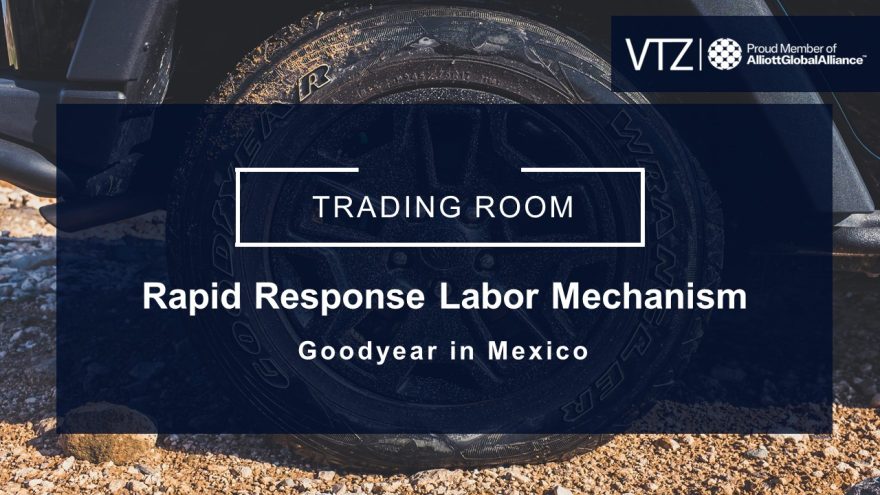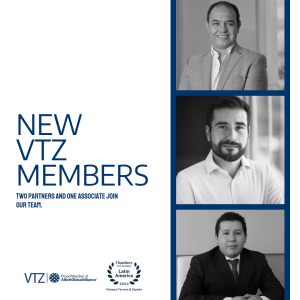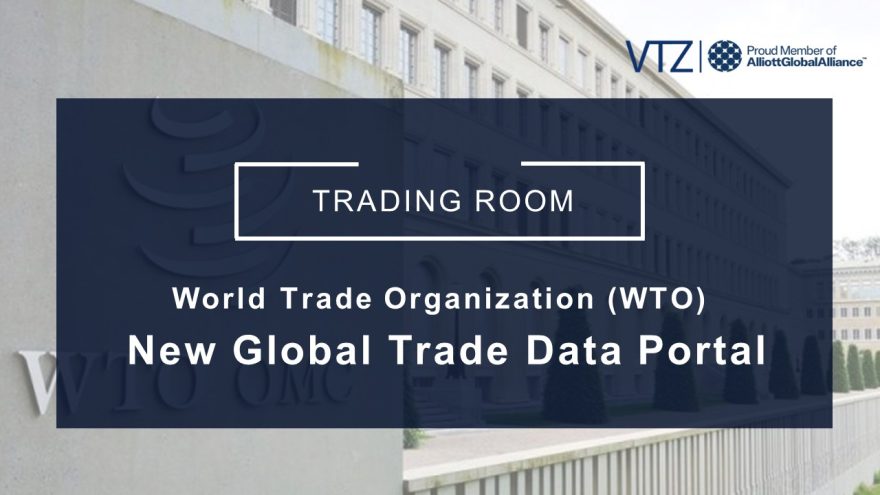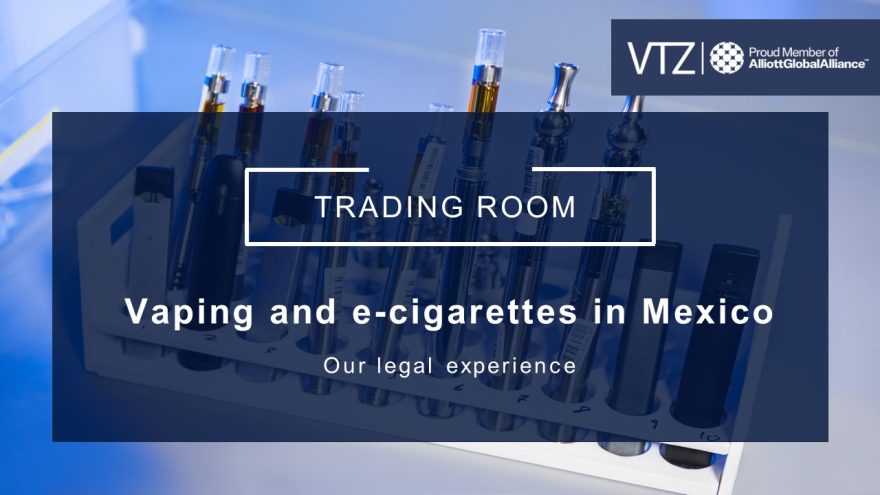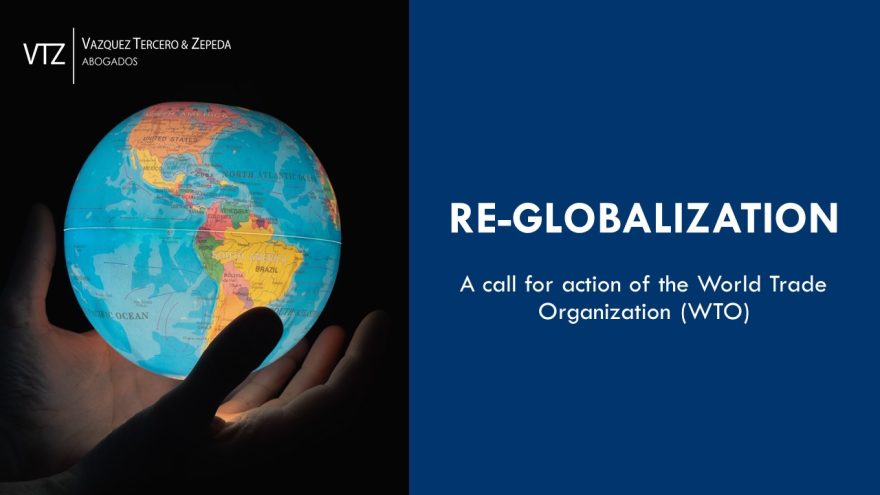Rapid Response Labor Mechanism: Goodyear Mexico Case
The workers at the Goodyear subsidiary in San Luis Potosí, Mexico, recently submitted a request for a review of potential labor rights denials. Goodyear’s workers allege that they were not consulted about a new Collective Bargaining Agreement (CCT) that was recently negotiated. Consequently, the union Liga Sindical Obrera Mexicana (LSOM) complained about this situation. And the United States Trade Representative (USTR) resorted to the USMCA Rapid Response Labor Mechanism (RRLM). In this article, VTZ shares with you its executive summary of the case.
What is the Rapid Response Labor Mechanism ?
The United States-Mexico-Canada Agreement (USMCA) came into force in 2020 and replaced the North American Free Trade Agreement (NAFTA). The USMCA introduced several significant changes to trade relations among the three countries. A notable improvement of the USMCA compared to the NAFTA is its emphasis on labor rights and the establishment of robust mechanisms to address labor violations.
The Rapid Response Labor Mechanism (RRLM) is a dispute settlement mechanism that allows the investigation of labor violations in a timely and effective manner. Under the RRLM, a party may request the establishment of a panel to investigate an alleged denial of rights. Such denial can must be related to the right of free association and collective bargaining of specific industries. In VTZ, we have written several articles on the Mechanism that you can read here:
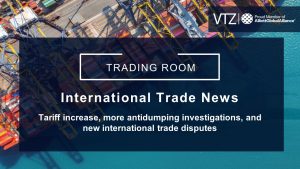
International Trade News
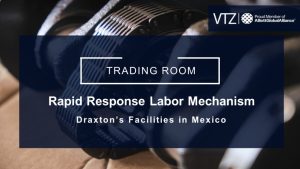
Draxton Case: Rapid Response Labor Mechanism
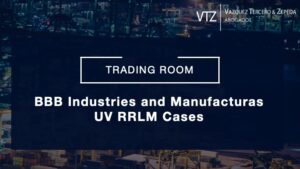
BBB Industries and Manufacturas UV RRLM Cases
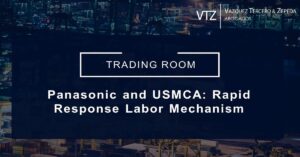
Panasonic and USMCA : Rapid Response Labor Mechanism
The Rapid Response Labor Mechanism is an effective means to protect labor rights because it allows the imposition of penalties and enforcement measures. These measures can include the suspension of trade benefits, such as the imposition of tariffs. By establishing an effective mechanism, the RRLM aims to promote more fair and balanced trade, as well as proper working conditions for workers across North America. If you want more information, you can check out our article on how the mechanism operates.
Background on Goodyear in Mexico
To better understand the case, it is important to review the story of Goodyear in Mexico. To begin with, the American Goodyear Tire & Rubber Company announced that it would build a factory in San Luis Potosí, Mexico in 2015. The factory commenced operations in 2017, and the premises reached full operation by 2019.
Since its inauguration, Goodyear’s factory in San Luis Potosí has faced numerous critics and labor incidents. One notable incident occurred in April 2018 when almost 600 out of 800 workers at Goodyear’s plant went on a wildcat strike. The strike resulted in the dismissal of 57 workers. This event shed light on the working conditions and lack of workers’ protection within the Mexican labor landscape.

Another incident further fueled the criticism of Mexican labor practices. In 2019, Goodyear refused to allow U.S. lawmakers to visit its factory in Mexico. This refusal drew the attention of numerous U.S. lawmakers, who expressed their concerns about the entrenched way of doing business in Mexico based on the exploitation of the workforce. The U.S. lawmakers stated that:
"What we saw at Goodyear clearly illustrates the entrenched way of doing business in Mexico that is based on exploiting a powerless workforce"
Earl Blumenauer
These kinds of incidents have been instrumental in driving the need for a comprehensive and efficient labor defense system within the USMCA. The public perception of these labor practices has highlighted the urgency to address labor rights violations.
What happened at Goodyear’s Factory in Mexico?
Now, Goodyear is facing a third incident in 2023. The main difference is that the USMCA is in force, and United States Government activated the mechanism. In April 2023, Goodyear Mexico held a vote to legitimize its CCT. The right to negotiate Goodyear’s CCT corresponded to the Sindicato “Miguel Trujillo López”. This union is affiliated to the Confederación de Trabajadores de México (CTM). The CTM is the largest union confederation in Mexico.
Throughout its history, CTM unions characterized for signing protection contracts with the companies. Protection contracts are agreements that include terms highly favorable to the companies, over the workers’ demands. In this case, the Sindicato “Miguel Trujillo López” signed a CCT with Goodyear.
The US Trade Representative's office (USTR) said it has asked Mexico to investigate labor rights denial claims at a Goodyear Tire & Rubber plant in San Luis Potosi in the latest 'rapid response' probe under North American trade rules https://t.co/8vainspszO pic.twitter.com/aYD7vEFBIA
— Reuters Legal (@ReutersLegal) May 22, 2023
Critics point out that Goodyear’s CCT has lower benefits for the workers than the sectorial CCT of the rubber industry in Mexico. Since the USMCA came into force, the CTM has lost numerous CCTs. For example, the CTM lost the right to negotiate the CCTs of General Motors and 3M in Mexico. Conversely, independent unions have gained ground in these last few years.
Concerning Goodyear’s case, independent union workers and representatives point out that the vote process was filled with irregularities. Workers report that the Sindicato “Miguel Trujillo López” interfered in the vote. In particular, reports indicate that the CTM union kept the CCT negotiation in secret. Moreover, workers supporting the LSOM stated that Sindicato “Miguel Trujillo López” members intimidated voters and stole a ballot.
Resort to the Rapid Response Labor Mechanism
The LSOM complained with the Labor Department of the United States to report the denial of rights concerning Goodyear’s vote. The complaint against Goodyear quickly caught lots of attention. This incident proved to be an opportunity for Mexican authorities to demonstrate their commitment with the protection of labor rights. Furthermore, the Mexican Government saw an ideal scenario to prevent the activation of the RRLM by solving the issue before a request for review. In consequence, Mexico gave a comprehensive and immediate response.
The Mexican Ministry of Labor conducted a thorough investigation, where the Ministry reviewed security camera videos, company documentation and labor officials on site. Moreover, the Ministry of Labor ordered the vote to be repeated. This time, the voting process was supervised by several authorities. Specifically, officials of the Federal Center for Conciliation and Labor Registration, the National Commission of Human Rights, and the International Labor Organization oversaw the process on April 24, 2023. In the poll results, 83% of Goodyear’s workers voted against the CCT signed by the Sindicato “Miguel Trujillo López”.
The USTR activated the Rapid Response Labor Mechanism
Despite the efforts of the Mexican Government, the USTR decided to active the Rapid Response Labor Mechanism. On May 22nd, 2023, the USTR submitted a request for review to ensure that Mexico analyzes the potential labor denial rights that occurred in Goodyear’s facilities. In the request for review, the USTR mentioned that it is concerned on whether Goodyear may be denying the collective bargaining rights from its workers by providing them less benefits in its company CCT that the rubber sectorial CCT.
The USTR office said it has asked Mexico to investigate labor rights denial claims at a Goodyear Tire & Rubber plant in central Mexico after an independent Mexican union, La Liga, petitioned US labor officials to open a case https://t.co/8vainspszO pic.twitter.com/s9OFx8dPCm
— Reuters Legal (@ReutersLegal) May 22, 2023
The USTR’s also established that is concerned that the Sindicato “Miguel Trujillo López” may be misinforming Goodyear’s workers about the CCT implications. Moreover, the USTR wants the alleged obstructions and interferences during Goodyear’s vote to be investigated thoroughly.
Consequently, the Mexican Government has 10 days to notify the United States of whether it will investigate the alleged denial of rights. That being the case, Mexico would have 45 days to remediate the denial of labor rights and share its remedy measures with the United States. If Mexico fails to provide satisfactory remedies to the situation, the U.S. Government could request the establishment of a panel. Eventually, Mexico could lose tariff benefits under the USMCA if its remedies to the Goodyear situation are determined to be insufficient by a panel.
Conclusions on the Goodyear Case
The Goodyear Mexico case exemplifies the use of the USMCA’s Rapid Response Labor Mechanism, highlighting its importance in addressing labor rights denials. The MLRR is designed to tackle labor violations and ensure effective remedies, focusing on the denial of free association and collective bargaining rights. Moreover, its penalties and enforcement measures, such as the suspension of trade benefits, make it a significantly effective mechanism in practice.
Goodyear’s case highlights the effectiveness of the MLRR in addressing labor rights denials and ensuring prompt resolutions. The mechanism’s penalties and enforcement measures, including the potential suspension of trade benefits, make it a significant driver for compliance and accountability. By promoting fair and balanced trade practices and improving working conditions, the MLRR contributes to a more equitable labor landscape in the region.
Overall, the Goodyear’s case exemplifies the importance of the USMCA’s Rapid Response Labor Mechanism in addressing labor rights denials and underscores the significance of protecting workers’ rights within the framework of international trade agreements. It serves as a reminder of the ongoing efforts to foster fair treatment and better working conditions in North America.
Need more information?
VTZ is a firm specialized in International Trade and Customs with extensive experience advising companies in international trade in Mexico.

